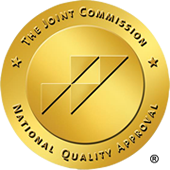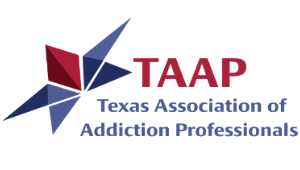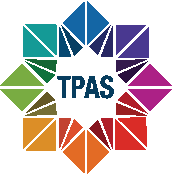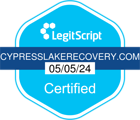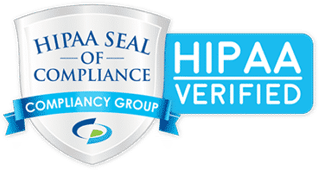Cognitive Behavioral Therapy (CBT) For Addiction Treatment in Texas
Addiction is something that affects each individual differently. As a result, it requires individualized treatment to fit each person’s unique needs to create lasting change. When it comes to using therapy as a tool to fight addiction, few modalities are more widely used than cognitive behavioral therapy (CBT). CBT for addiction is designed to help people in treatment to identify and change harmful patterns of thinking and behavior that may contribute to their addiction. Ultimately, this empowers them to take control of their recovery journey.
At Cypress Lake Recovery, we integrate CBT into our evidence-based treatment programs to address the root causes of addiction. Whether someone is dealing with alcohol addiction, drug dependency, or a behavioral addiction, CBT can be a transformative tool for long-term healing.

What is Cognitive Behavioral Therapy (CBT)?
Cognitive Behavioral Therapy (CBT) is a structured, goal-oriented form of psychotherapy that focuses on the connections between thoughts, feelings, and actions. Originally developed in the 1960s, it has become a cornerstone for modern psychologically-based treatments of all kinds.
The core principle of CBT is simple yet powerful: how we think affects how we feel and how we act. By identifying and challenging distorted or unhealthy thought patterns, those utilizing CBT techniques can begin to shift their emotional responses and behavioral choices. When it specifically comes to addiction, CBT can help people better understand the thought patterns and behaviors that helped lead to or contribute to their addiction. They can then feel better able to adopt healthier, less destructive coping mechanisms moving forward.
For someone suffering from addiction, cognitive behavioral therapy can help provide a clear road map for understanding triggers, managing cravings, and building a sustainable recovery lifestyle.
The Cognitive Triangle
A foundational concept in CBT is the Cognitive Triangle. The cognitive triangle focuses on three specific psychological principles and illustrates how the three are interconnected.
- Thoughts: These include beliefs, assumptions, self-talk, and internal judgments. For example: “I can’t cope with stress without using heroin.”
- Emotions: These are the feelings that arise from those thoughts. In this case, the person may feel anxious, hopeless, or overwhelmed.
- Behaviors: Finally, these are the actions taken as a result of those thoughts and feelings, such as turning to drugs as a coping mechanism.
When a person is stuck in a bad cycle of the cognitive triangle, their negative thoughts feed uncomfortable emotions. This in turn can lead to unhealthy behaviors that reinforce the original thoughts. These cycles can become automatic and deeply ingrained over time.
CBT helps those in treatment break this cycle by examining and challenging these automatic thoughts. Through therapy, they learn to reframe negative self-beliefs and develop alternative ways of responding to stress, cravings, and emotional discomfort. As they practice new thought patterns and behaviors, their emotional responses and actions can begin to shift as well.
Contact Our Admissions Team Today

Benefits of CBT For Addiction
One reason in particular that CBT is so widely used in addiction treatment is because of the significant benefits it can offer for those in recovery. Whether someone is just starting out or has been in recovery for years, CBT can help in a number of ways.
One of the greatest strengths of cognitive behavioral therapy is its ability to help individuals become more self-aware. Many people struggling with addiction operate on autopilot, responding to internal stressors or external triggers without fully understanding why. For those in recovery, CBT helps them slow down and reflect on their internal experiences. By identifying and learning about their harmful thought patterns, they can then begin to challenge and replace them with healthier and more realistic perspectives. That shift in mindset can play a key role in reducing emotional reactivity and compulsive behavior.
Another major benefit of CBT is the fact that it can be combined with other forms of therapy to help create a comprehensive therapeutic treatment program. At Cypress Lake Recovery, we often integrate CBT with modalities like:
- Dialectical Behavior Therapy (DBT)
- Eye Movement Desensitization and Reprocessing (EMDR)
- Holistic treatments like art and music therapy
- Adventure therapy
Because CBT can be combined with other therapies, it can also be very helpful for those suffering from mental health issues as part of a dual diagnosis treatment program.
Addiction often leaves people feeling powerless, trapped, or unable to manage their own lives. CBT can help restore a sense of agency by teaching practical skills that can be used daily, such as:
- Identifying triggers before they escalate
- Using thought-stopping techniques to interrupt impulsively acting on cravings
- Replacing old behaviors with healthy alternatives
By breaking down relapse prevention into manageable everyday steps, CBT allows people to set achievable goals and measure their progress. Over time, this can help empower them to believe in their ability to maintain sobriety and thrive in their personal lives.
While some therapies emphasize deep emotional exploration or revisiting childhood experiences, CBT tends to stay focused on the present. For many people, especially those who are new to therapy or who may be in the early stages of recovery, this can make treatment feel more approachable and effective.
CBT offers a structured, problem-solving approach that often speaks directly to those who have resistance to therapy. It doesn’t require people to relive traumatic events or get stuck in painful memories. Instead, it gives them tools to function better in the present, which is often appealing to those who want to take action but fear becoming stuck recalling painful memories or emotions.
Testimonials
![]()
![]()
![]()
![]()
![]()
Regina
I am so happy that I chose Cypress to begin my recovery. I have suffered for years from depression, anxiety, panic disorder, and PTSD. The programs that are offered here at Cypress have been truly phenomenal in helping me recover. I also appreciated the professional staff that are here on duty 24/7, which helps create a safe environment. Cypress Lake Recovery uses effective “one on one” methods that meet each person’s individual needs because they evaluate and have a better understanding of your personal traumatic experiences. Thanks Sabino, I am truly grateful to you and the Cypress family.
![]()
![]()
![]()
![]()
![]()
J.A.
A beautiful facility! Staff sets the tone and kindness that residents easily follow. Thank you, Cypress Lake Recovery!
![]()
![]()
![]()
![]()
![]()
Pamela
The program at Cypress Lake Recovery works! I emerged from an accumulation of unrecognized emotions, issues of trust, and unresolved grief and loss. 35-days of effective integration of customized quality therapy reconnected my mind, body, spirit, and I am worth it! I had masked emotions and hurtful events for decades with alcohol. At Cypress Lake Recovery I safely focused deep within to unleash harmful secrets and self-degradation. Tools of recovery were practiced, not just presented. Integrative therapies were tailored to my circumstances, thus were effective. This residential program is like no other. For me, Cypress Lake Recovery delivered what was professed. I am forever grateful for this gift of healing.
![]()
![]()
![]()
![]()
![]()
Mike
Life changing experience. Wonderful staff. Wonderful program. Thanks for everything!
![]()
![]()
![]()
![]()
![]()
Darcy
It was great to begin my recovery in a group environment with so many knowledgeable nurses, therapists, BHT’s, and others around for support. The equine therapy, challenge course, family week, and daily therapies all work together seamlessly, allowing me to leave Sabino as a healthier and stronger person!
The Importance of Dual Diagnosis Treatment For Addiction
Examples of this include:
- A person with untreated social anxiety turning to alcohol to feel more comfortable in social settings.
- A person with trauma-related PTSD using opioids to lessen the impact of emotional pain.
Someone
Simultaneous Treatment for Best Results
When integrated into a dual diagnosis program, CBT can help people in treatment understand the relationship between their substance use and their mental health. It gives them strategies for managing both, so they don’t feel they have to rely on substances to cope.

Heal From Addiction with CBT for Addiction at Cypress Lake Recovery
At Cypress Lake Recovery, we understand that no two journeys to recovery are the same. That’s why we take a personalized, compassionate approach to addiction treatment, tailoring every program to meet the unique needs of the individual. Cognitive Behavioral Therapy plays an important role in our care, helping those in treatment understand themselves more deeply and reclaim control over their lives.
If you or someone you care about is struggling with addiction, now is the time to take the first step. Cypress Lake Recovery is here to guide you with compassion, evidence-based care, and the belief that recovery is possible for everyone. Contact us today to learn more about how we can support your healing journey and help you take the first step toward lasting freedom from addiction.
Nationally Recognized & Accredited
